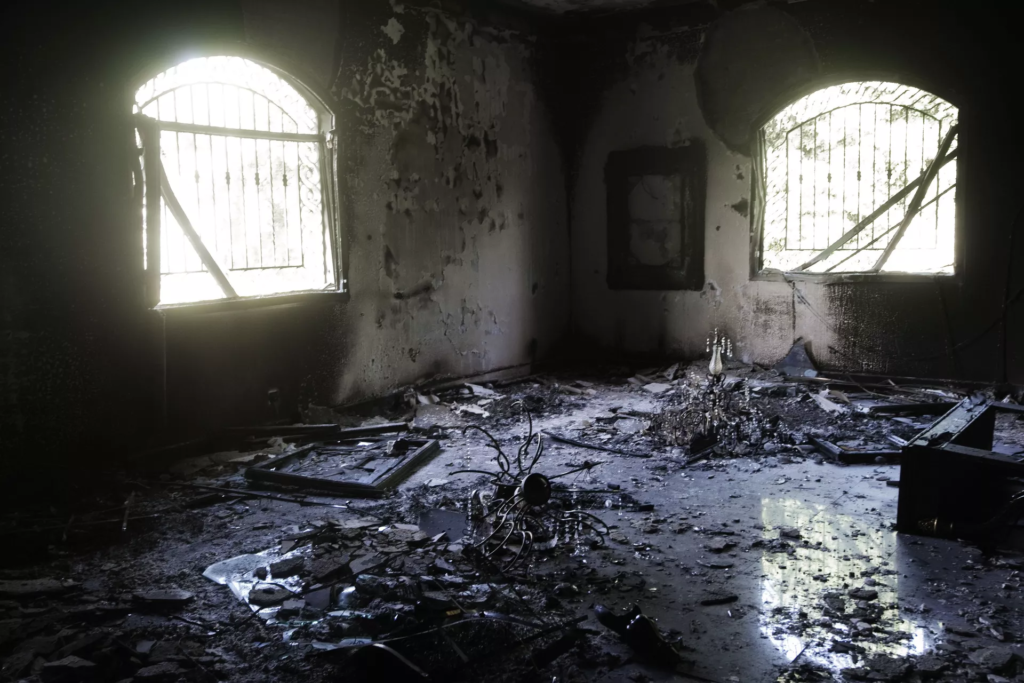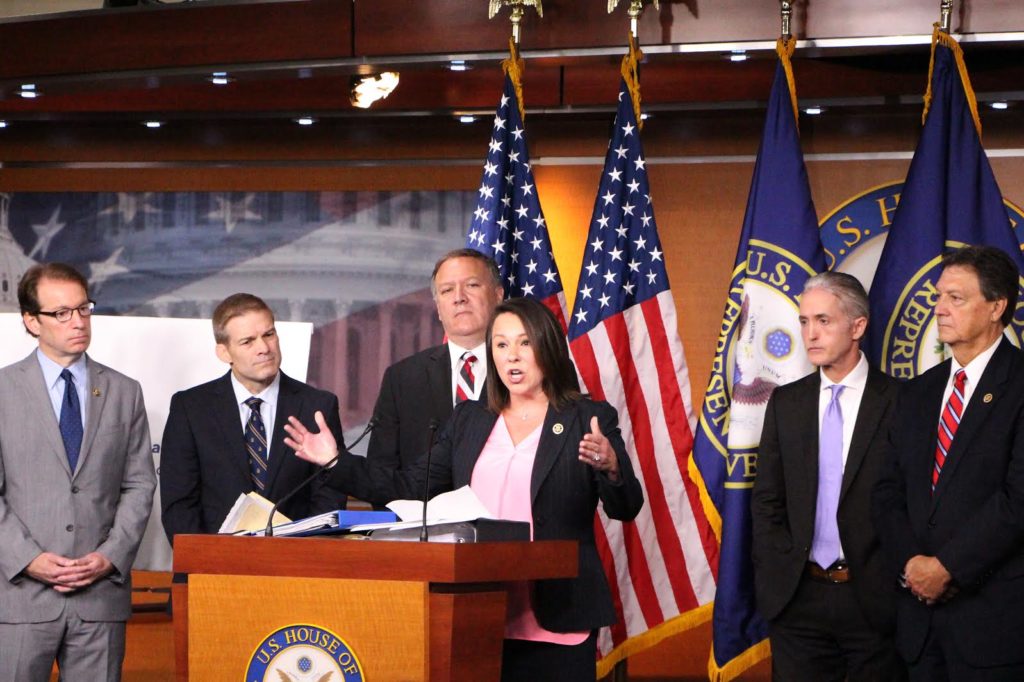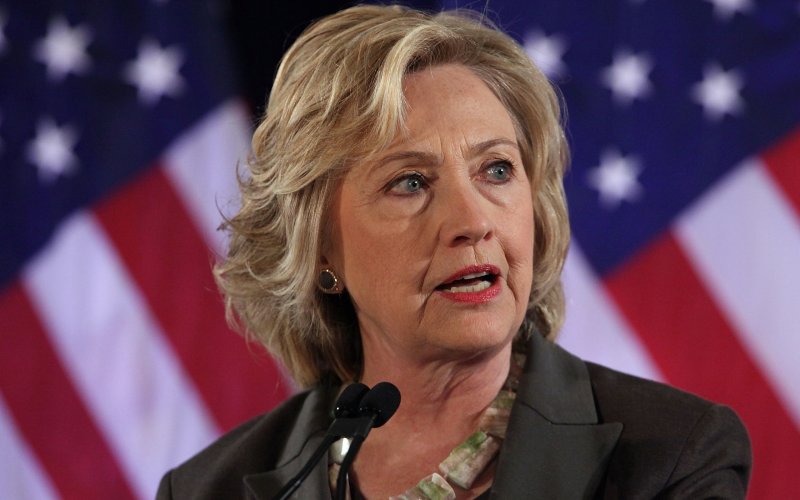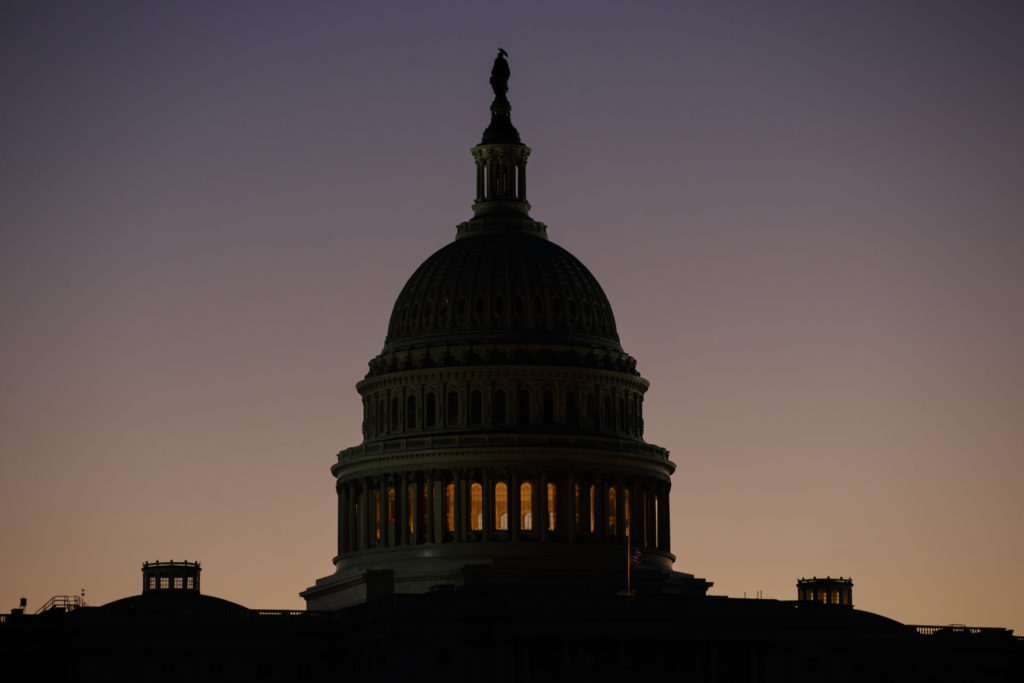Martha Roby: Benghazi report released

The Select Committee on Benghazi released its much-anticipated report last week, documenting through more than 800 pages a better understanding of what happened leading up to, during and after the September 11, 2012, terrorist attacks that killed four Americans: Glen Doherty, Tyrone Woods, Sean Smith and U.S. Ambassador Chris Stevens. The report contains a substantial amount of new information that reveals a much clearer picture about Benghazi and changes our understanding about the government’s mishandling of the attacks. As a Member of the Select Committee, I encourage everyone to read the report for themselves online at www.Benghazi.House.gov. There are a few key takeaways I believe are worth highlighting. First, many mistakes were made by different agencies leading up to the attacks, none more critical than the failure to be prepared for the anniversary of September 11. The State Department refused multiple requests to increase security, including from Ambassador Stephens himself. The military unit best-equipped to respond to an attack of this nature was inexplicably off training that day. Department of Defense officials were unaware of covert facilities and other critical assets in the region. There was a clear breakdown in posture and preparedness that hamstrung the ability of our military to respond. The report shows that, while no one person involved is solely responsible for these breakdowns, no one person involved is free from responsibility either. A second key takeaway is that, during the attacks, there was a serious lack of urgency in Washington to respond. While our guys on the ground in Benghazi were taking gunfire and mortar attacks, Washington was moving at a snail’s pace. Despite President Barack Obama directing Secretary of Defense Leon Panetta to use all resources at his disposal to save American lives and Secretary Panetta then ordering the nearest known assets to deploy, bureaucratic indecision and miscommunication delayed those forces. Administration officials were more concerned about diplomatic sensitivities and promoting their policy agenda as successful than they were about the safety of the Americans under attack. The ultimate result was not one military asset being deployed to Benghazi. A final key takeaway is that, in the aftermath of the attack, there was a clear effort across agencies to cover their tracks. We now know beyond a doubt that what Administration officials were telling the American people about Benghazi and what they acknowledged to each other privately was very different. The White House continued to conflate the anti-Muslim YouTube video and the Benghazi attacks even though no intelligence ever indicated a connection. Meanwhile, emails and statements from former Secretary of State Hillary Clinton show her clear understanding early on that “our officers were killed in Benghazi by an Al Queda-like [sic] group” and “we know that the attack in Libya had nothing to do with the film. It was a planned attack—not a protest.” Our government failed the people it sent into harm’s way and then misled the public in the aftermath. That is unacceptable in our society, and Americans should demand better of their government leaders. Our report shines a bright light on these failures in the hope that we can prevent such a tragedy from ever happening again. ••• Martha Roby represents Alabama’s 2nd Congressional District. She lives in Montgomery, Alabama, with her husband, Riley and their two children.
Martha Roby: Benghazi report shows ‘American government failed its people and lied to the public’

The Select Committee on Benghazi released its much-anticipated report Tuesday, documenting through more than 800 pages a better understanding of what happened leading up to, during and after the terrorist attacks that killed four Americans, including the U.S. Ambassador in Libya. New information released in the report reveals a clearer picture about the government’s mishandling of the attacks, including a failure to accommodate increased security requests, a lack of urgency to respond to the attacks and a coordinated effort to mislead the American public about the nature of the attacks. According to Alabama 2nd District U.S. Rep. Martha Roby, a member of the Select Committee, the United States government “failed its people and lied to the public.” “While our guys were on the ground taking gunfire and mortar attacks, Washington was moving at a snail’s pace,” Roby said at news conference Tuesday announcing the report. “In Washington, the Administration was more concerned about diplomatic sensitivities with the Libyans and promoting its policy agenda as successful than it was about the safety of the Americans it sent there.” Roby went on to explain the committee’s investigative efforts were met with strong opposition from the Defense Department, “and now we know why.” Pointing out the DOD failed to deploy to Benghazi in an effort to save Americans at the overrun compound. “At the end of the day, no military assets directed by Washington ever moved toward Benghazi,” Roby said. “The bottom line is that Washington failed to have our guys’ back when they needed it. From my perspective, this lack of urgency demonstrates either incompetence or indifference, or both.” “In this case, the American government failed its people and lied to the public in the aftermath,” Roby concluded. “This is unacceptable, and I know that our report shines a bright light on these events so we can prevent this from ever happening again.” Watch Roby at the news conference below:
Martha Roby: The Clinton emails: Why they matter

By now you’ve heard the news that the U.S. Department of Justice is taking possession of the personal, secret server former Secretary of State Hilary Clinton used to conduct official email correspondence. Clinton’s decision to finally surrender the server to authorities comes in the wake of revelations that classified, “Top Secret” materials were indeed contained in emails on her private account, counter to her previous claims. But, what makes this development so significant? Why does it matter to the FBI whether Clinton used her own private system to conduct email correspondence? First of all, federal law prohibits storing classified information in unauthorized places, with penalties ranging from a fine to one year in prison. We have stringent security protocols for those who deal with sensitive, classified information because that information could be used to threaten our national security and put those in military or clandestine service at risk. And, in a world with growing cyber security threats, the risk is even greater for digitally stored information. For example, NBC News recently reported that Chinese hackers had penetrated the private email accounts of many top Executive Branch officials since 2010. The officials’ government accounts were not penetrated, though, because they have a much higher level of security. It is unclear whether Secretary Clinton was among those top officials to have their private emails hacked though an in-house email system like hers is believed to be particularly vulnerable to hackers. The bottom line is Secretary Clinton deliberately flouted our nation’s protocols with her personal email arrangement and, in doing so, threatened the security of classified, Top Secret information. Her apparent obsession with retaining absolute control of her email came at the expense of national security, and that should concern all Americans. Secretary Clinton says she already deleted more than 30,000 emails and “wiped” the server housing them, so it’s unclear just how much can be gleaned from what was turned over. But I am hopeful the FBI, Inspectors General and the Select Committee on Benghazi can get to the bottom of it. It’s worth noting that none of this would have been brought to light without the formation of the Select Committee, the determination of our Chairman, Trey Gowdy, or the diligent work of our investigators. My colleagues and I are preparing for Secretary Clinton’s appearance before the Select Committee in October. Given these revelations and her previous statements, she will certainly have some explaining to do. Martha Roby represents Alabama’s 2nd Congressional District. She is currently serving her third term.
Alabama congressional delegation largely supportive of Benghazi Select Committee

In the wake of recent news that former Secretary of State Hillary Clinton has agreed to testify before a U.S. House Select Committee investigating the 2012 attacks on an American compound in Benghazi, some Republican members of Congress are licking their chops at the prospect of getting a good crack at the 2016 Democratic presidential frontrunner over an issue that remains on the front burner for conservatives. Among them is U.S. Rep. Martha Roby of Alabama’s Wiregrass and Montgomery-based 2nd Congressional District. Roby is one of seven Republican members chosen for the committee. “It doesn’t surprise me that the Clinton lawyers want to limit her testimony,” Roby told Alabama Today on Tuesday, responding to corollary news that Clinton has refused to testify twice as requested by the committee, conceding to only one hotly anticipated appearance. “But, remember, it was her decision, not ours, to set up a secret email system in a calculated attempt to flout government transparency requirements. And there are many legitimate questions that remain unanswered.” She expressed her enthusiasm that South Carolina U.S. Rep. Trey Gowdy — who has been vocal in his criticisms of Clinton over Benghazi — may get to oversee a panel devoted to extracting answers from the former New York senator in light of her use of a private email address while serving on President Barack Obama‘s Cabinet. “I know that Chairman Gowdy is taking this offer into consideration and we will see what happens going forward. Chairman Gowdy has been a deliberate, effective leader of this Select Committee and we are behind him 100 percent,” Roby said. U.S. Reps. Bradley Byrne, Mike Rogers, Robert Aderholt and Mo Brooks — Republicans all — each voted “yea” and co-sponsored the federal legislation that created the committee. Democrat Terri Sewell, for her part, voted against it. Rep. Gary Palmer wasn’t yet elected when the House created the Select Committee. He did tell Birmingham talk radio host Matt Murphy in March he thinks “we should subpoena the server and see what’s on it.” Palmer also told the Birmingham Morning News, “I have zero confidence that this Justice Department will do anything under Obama [concerning Clinton’s emails].”


